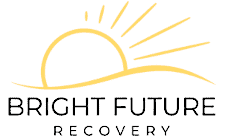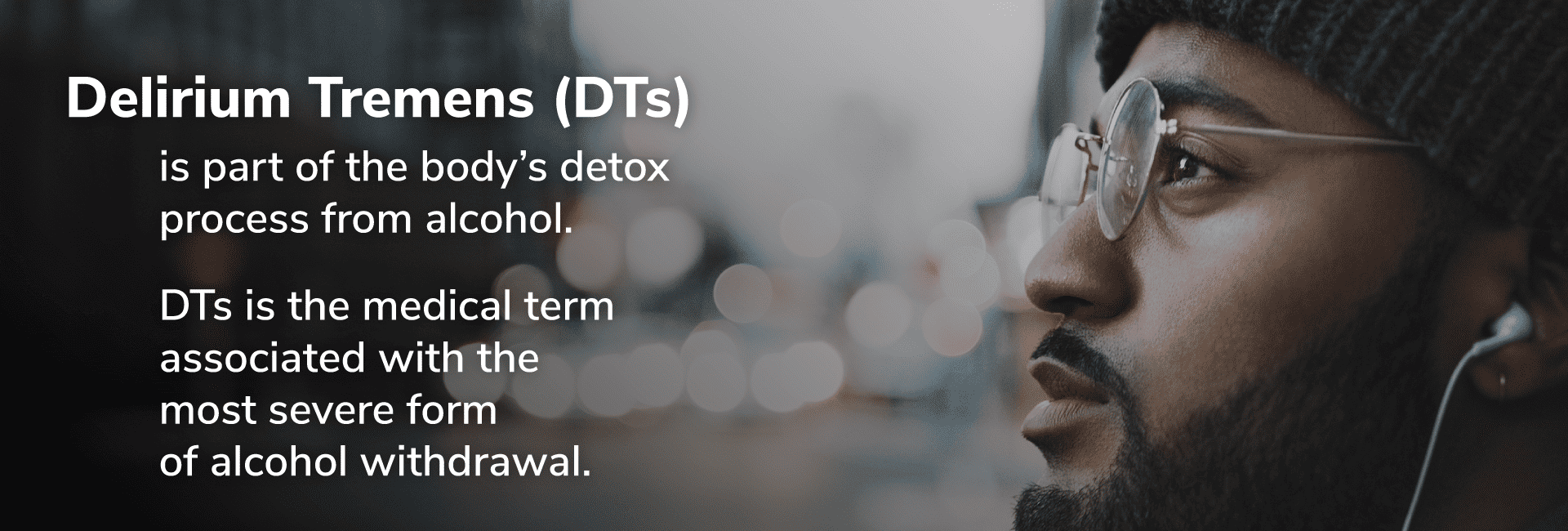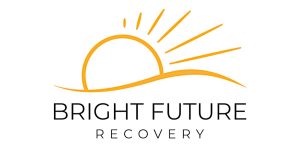
Bright Future Recovery serves Northern California, Central California, Southern California and the U.S. with evidence-based, whole person and affordable addiction rehab treatment associated with alcohol and drug abuse. We are happy to share valuable addiction recovery information.
Questions about Drug and Alcohol Abuse and Recovery?
Call Bright Future Recovery at (831) 245-1623 for a Confidential Consultation. We Can Help.
Table of Contents
Delirium Tremens: Its Symptoms and Treatments
At Bright Future Recovery, our goal is helping people, and the “product” we are “selling” is saving lives.
One scary and potentially life-threatening issue of detoxing from alcohol is DTs, or delirium tremens. With decades of experience in therapies, both medical and emotional, we can help you or your loved one handle this condition. Delirium tremens symptoms can vary from person to person, as can their severity. Whether you’re looking for help for yourself, your teen, or another loved one, understanding the basics of DTs can offer insight into the first steps of alcohol recovery.

What Is Delirium Tremens?
When people hear the term “DT,” many think it means “detox,” but DTs is actually a part of the body’s detox process from alcohol. DTs is the medical term associated with the most severe form alcohol withdrawal and is also the umbrella term for many later stage alcohol withdrawal symptoms.
Alcohol withdrawal happens when a person drinks alcohol for a long period of time and then quits or stops drinking. This act causes a type of shock to the body, causing symptoms that affect the physical, mental, and emotional wellbeing of the person experiencing it.
Because delirium tremens (or DT), is the most severe type of alcohol withdrawal, it requires careful monitoring and symptom control with a licensed and reputable detox program/medical facility. It is not guaranteed that everyone who is experiencing withdrawal will have DTs but if you do, you are experiencing going through alcohol withdrawal.

The Symptoms and Steps to Delirium Tremens
Symptoms of DTs vary based on many factors such as length of alcohol use, amount of alcohol use in that period of overall alcohol consumption, overall general health, age, weight, and genetic markers, and other issues. Each body will react differently to alcohol withdrawal, but there are certain alcohol withdrawal symptoms most people encounter on their road to detoxifying their body of alcohol:
Early Withdrawal from Alcohol
This occurs within the first 8-12 hours after a person’s last drink and can last for 1-3 days in total:
- Headaches
- Clamminess of skin
- Malaise or lack of energy
- Tremors/trembling
- Insomnia/restlessness
- Anxiety
- Increased perspiration/sweating
- General irritable mood
- Mood swings (emotions shifting from one extreme to another)
- Vomiting and Nausea
Later Withdrawal from Alcohol
These tend to be the most severe symptoms people experience before delirium tremens. Alcohol detoxification from here can be the most dangerous and when people need the most attention. However, each persons’ reaction to alcohol withdrawal is unique, and it’s possible to experience these symptoms during early withdrawal. For those with alcohol dependency, these symptoms will more than likely occur around 12-24 hours after a person’s last drink:
- Sensory hallucinations
- Difficulty breathing or changes in breathing patterns
- Seizures
- Blood pressure fluctuations (either rising BP levels or lowering)
Delirium Tremens (DTs)
This occurs within the latest stages of alcohol withdrawal (around 48 to 96 hours after the person’s last drink) but can occur as late as 7 to 10 days after a person stops drinking. Symptoms of DTs are:
- Long-term sleeping/oversleeping
- Disoriented behavior or confusion
- Seizures or tremors
- Fatigue or sleepiness
- Mood swings/changes
- Light, sound, and/or touch sensitivity
- Heart rate changes (can potentially be fatal)
- Breathing changes (can potentially be fatal)
- Delirious behavior
- Anxiety or anxiety symptoms (panic, feeling of impending disaster, hyperventilation, etc.)

Delirium Tremens Treatment
About 50% of people experiencing alcohol withdrawal will experience DTs. However, those who do experience DTs are in danger. Of that 50%, 3-5% will suffer from the most severe symptoms of DTs, including grand mal seizures. If you, your teen, or a loved one is suffering from DT symptoms, get help immediately. DTs requires experienced care at a reputable rehab facility equipped to handle the symptoms and treat them properly by a licensed medical professional. A home or primary care physician’s office does not have the tools or equipment needed to administer to someone experiencing DT.
Once under medical care, a professional may conduct a series of tests such as electrocardiograms (ECGs), blood magnesium levels, blood phosphate levels, metabolic panels, or toxicology screens. The tests will help the rehab team decide what treatment is the best option to aid in saving the life of the patient.
To reduce the symptoms of alcohol withdrawal, benzodiazepines might be used. There are specific pharmaceuticals used to aid in alleviation of alcohol withdrawal such as Ativan (lorazepam) and Librium (chlordiazepoxide). These medications might help in the alleviation of anxiety as they are used for those who suffer from anxiety but are not going through alcohol withdrawal, as well. However, the administration of such drugs would be to help the patient overcome DTs and survive alcohol withdrawal.
Vitamins and minerals might be administered intravenously (if orally is not an option) to combat lack of nutrients, loss of nutrients, or nutritional deficiencies that often accompany heavy alcohol consumption (especially nausea, vomiting, poor diet, or lack of eating).
Even with medical treatment, fatalities can still occur in about 5% of patients. Without any treatment whatsoever, the number of fatalities spike to 15-35% fatality, so it is extremely important that those experiencing DT get to a hospital as soon as possible.
The most common cause of death for patients with DTs is respiratory failure or cardiac arrest/arrhythmias (heart attack).

Intervention Help for Adults
At Bright Future Recovery, we understand that detoxing happens at different levels. We meet people where they are in their recovery journey and work toward rehabilitation no matter the level. Before all that can occur, though, getting the person who is suffering from addiction to agree to alcohol cessation and detox is the first step.
For this, we offer intervention services to help get your loved one into a detox and recovery program. We understand how hard it is for a family member or loved one to witness the trials a person seeking treatment or in treatment might go through, so we pay special attention to the inclusion and education of the family throughout the process.
When you or your loved one is done with their initial rehabilitation, we won’t just leave them without a support system; our unique program offers a first stage monitoring program, which gives our clients post-treatment aftercare, as well as 5-year case management and monitoring for long-term rehabilitation and treatment. We also offer programs tailored specifically for teenagers, so they understand their addictions and work through their dependency in a healthy, safe, and supportive environment.

Find Help for Alcohol Dependency with Bright Future Recovery
Bright Future Recovery believes there is a path to recovery for everyone. We offer detox services specific to the person who is suffering dependency as a preparation to enter our residential recovery program. The goal with these programs is to get and keep clients medically stable through detox and able to enter and complete a rehabilitation program.
We offer therapies to assist with the mental, physical, and emotional aspects as well.
Bright Future Recovery is located in the hillsides around Hollister, California. In San Luis Obispo, we also have a luxury rehab location: Avila Heights Recovery.
Let Bright Future Recovery help and give you a chance to turn a consequence into a life lesson learned. You deserve a healthy and happier life!
Are you or a loved one struggling with drug or alcohol abuse?
Call Bright Future Recovery Now
Confidential Consultations and Insurance Verification
Detox | Residential Rehab | Virtual IOP Outpatient Rehab | Relapse Prevention
Frequently Asked Questions
Bright Future Recovery is located one serene drive from Silicon Valley in northern San Benito County, California. Bright Future Recovery is a place where our patients can get away from it all as they focus on detox and starting residential addiction recovery on the right foot.
Even so, our property is close enough to town that you don’t feel disconnected.
Take the first step to a brighter future for yourself, family or loved one today, call (831) 245-1623.
We are family oriented drug and alcohol detox and rehab center in Northern California. We offer a range of holistic and evidence-based addiction treatment services with personalized treatment plans.
Bright Future Recovery Northern California addiction rehab treatment provides whole person recovery with intervention, medical detox, holistic evidence-based residential rehab, outpatient IOP rehab, virtual IOP, relapse prevention and aftercare.
Whether struggling with alcoholism, drug addiction, or other form of substance abuse – our professional, experienced and compassionate staff is here to guide and support our patients every step of the way.
As a small 12 bed program in a home-like and comfortable environment – we are able to give our patients individual attention.
Take the first step to a brighter future for yourself, family or loved one today, call (831) 245-1623.
Medications during medical detox are given as needed; dosage is determined by a licensed physician. The length of detox is dependent on several factors. These include general health and type and length of the addiction.
For treating opiate addiction, we use MAT Medication-Assisted Treatment.
Please call Bright Future Recovery for a confidential consultation at (831) 245-1623.
An average detox takes 7 – 10 days. Although for some individuals detox may last longer. The length of detox depends on several factors. These include overall health, substance taken and the length of the addiction.
We treat opiate addiction with MAT medication-assisted treatment.
Please call Bright Future Recovery for a confidential consultation at (831) 245-1623.
Addiction is a complex disease that can have a devastating impact on individuals, families, and communities. But there is hope. Bright Future Recovery residential addiction treatment provides the support and structure individuals need to overcome addiction and achieve lasting recovery.
Our addiction rehab treatment provides whole person recovery with intervention, medical detox, holistic evidence-based residential rehab, Virtual IOP outpatient rehab, relapse prevention and aftercare.
We accept most insurance and can verify your insurance benefits.
Residential rehab treatment can last 30 to 90 days or longer – depending on the needs of the individual.
Take the first step to a brighter future for yourself, family or loved one today, call (831) 245-1623.
Whether stepping down from residential treatment or seeking to complement ongoing recovery efforts – our Intensive Outpatient Program (IOP) is designed to support your unique path to wellness.
In our IOP Program, patients can maintain their daily routine while accessing the quality treatment and support needed to recover and thrive.
· Patients can participate in our Outpatient IOP holistic alcohol and addiction recovery rehab while maintaining personal and professional responsibilities.
· Patients graduating from our Residential Rehab program can continue to receive professional support and rehab education.
· Virtual IOP – Our outpatient treatment program in a convenient, flexible format that allows clients to receive our IOP rehab from any internet-connected device.
Please call Bright Future Recovery for a confidential consultation at (831) 245-1623.
Location and Directions
Bright Future Recovery also owns and operates Avila Heights Recovery.
Avila Heights Recovery is our luxury executive rehab in San Luis Obispo.








